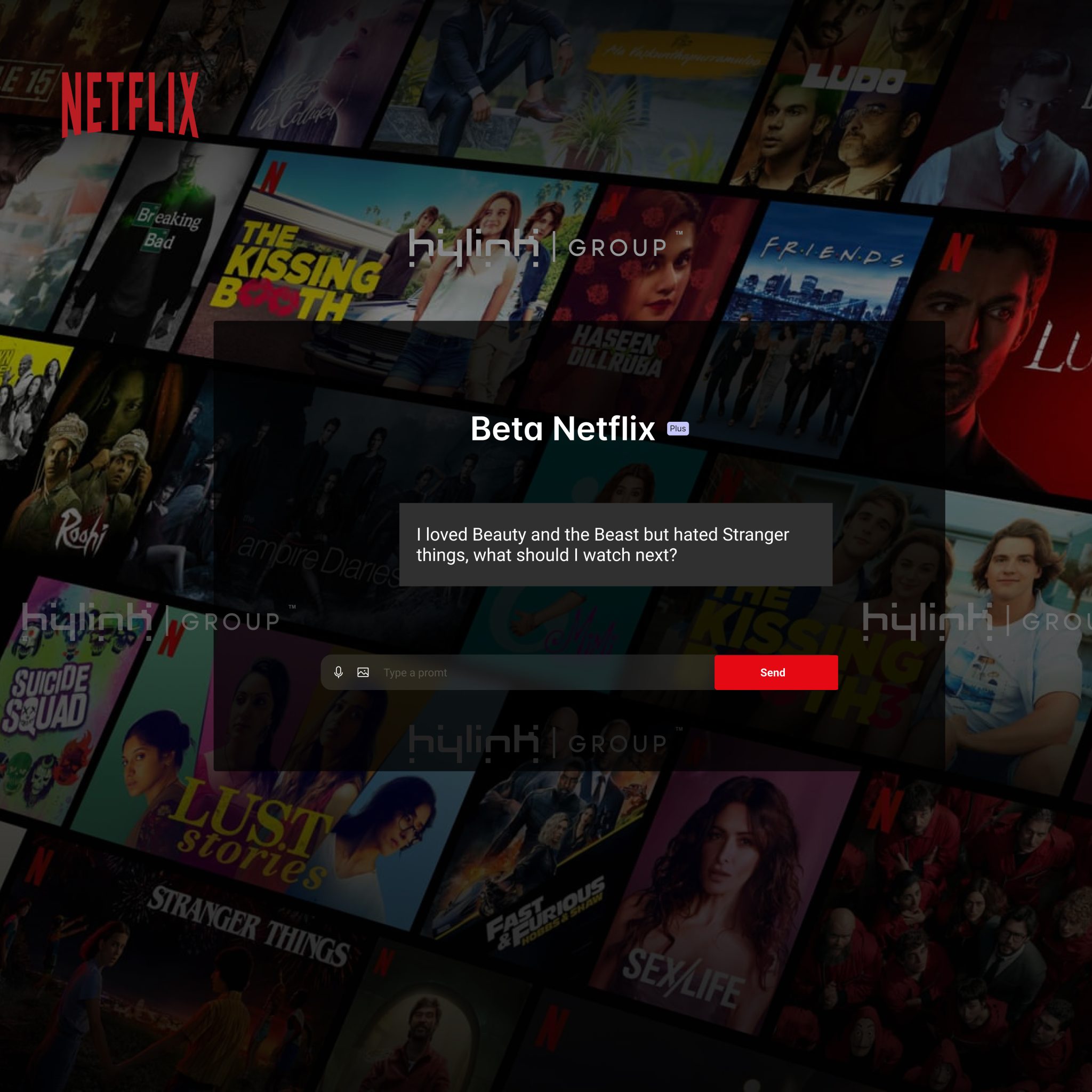The Future of Streaming

Let’s face it: we’ve all been there, that moment when the tv screen goes black after the last episode of a too-good tv show.
There is a second of panic where we wonder what’s next.
Luckily the next great show you can binge-watch should be just a click away, but often navigating streaming platforms turns into doom-scrolling: even when the possibilities are endless, it seems like there is nothing to watch.
As it has become increasingly evident with the integration of Generative AI into booking platforms, search engines, and music streaming services, this problem can easily be fixed.
Generative AI is quickly becoming the go-to technology for companies looking to optimize their search engine capabilities. Streaming platforms are no different in this respect; they stand to gain from the numerous benefits that generative AI can offer when incorporated into their search engines.
The most prominent benefit of using generative AI is its ability to provide accurate and tailored search results. By leveraging AI algorithms such as natural language processing, generative AI can understand the intent behind a user’s query and filter out irrelevant results.

In other words, it can provide users with more relevant content that is better aligned with their interests. In this way, streaming services can save users the time they spend browsing and actually have them engage with more content.
Another benefit of using generative AI in streaming platforms is its ability to curate personalised recommendations for each user based on their individual preferences. By analysing data from previous searches and viewing habits, generative AI can surface content that matches an individual’s specific tastes and interests.
Generative AI can also help improve the overall quality of search results. By utilising machine learning and natural language processing, generative AI can scan through vast amounts of data to identify trends in the content being searched for.If users can engage with streaming platforms via natural language processing, they could ask things such as: “I loved Game of Thrones but hated _ , what should I watch next” instead of just typing Game of Thrones; or “I am going through a bad breakup and need a feel-good movie to watch” instead of typing “rom-com movies”.
This allows streaming services to present a more comprehensive list of search results that are both highly relevant and of high quality. Overall, the integration of AI into streaming platforms would improve UX.
AI also provides powerful insight for streaming platforms by providing better feedback on what users are searching for. In terms of content generation, this could be a game-changer for streaming platforms: they have access to the natural language queries of their customers. They can use this information as templates to generate new content, and the lapse between customer demand and new content could be reduced significantly.
Generative AI has tremendous potential for optimising streaming experiences thanks to its ability to provide accurate and tailored search results, personalised recommendations, and improve the overall quality of searches.